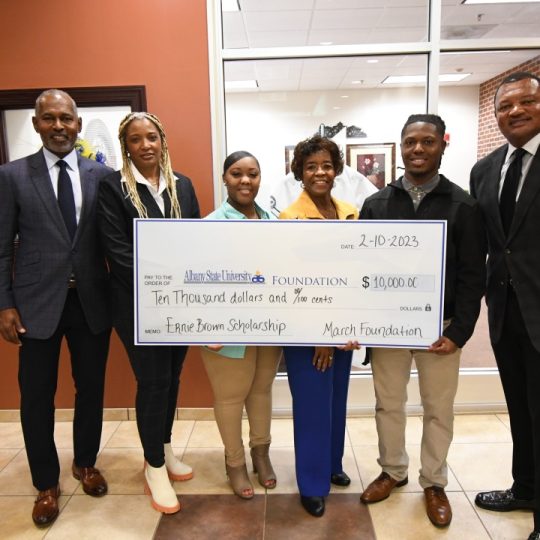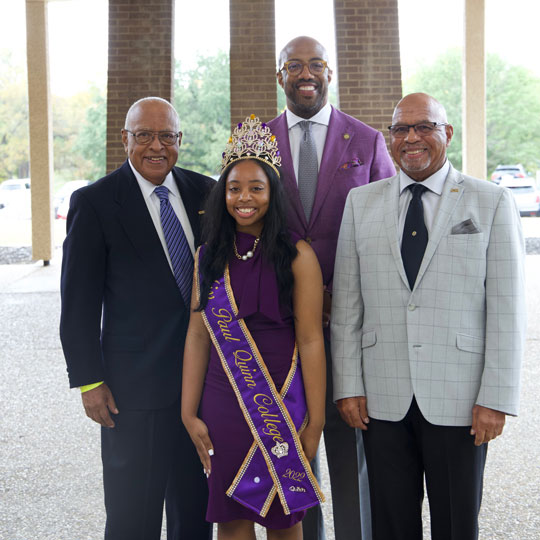
Future Oncologist Grateful for MARCH Foundation Scholarship
October, 2023 | Categories: Scholarships
Take a few minutes to talk to Ashton Jackson, and you will instantly be impressed with his poise, his thoughtfulness and his drive to be a successful oncologist, giving back to his community all along the way.

Ashton Jackson, junior, Tennessee State University
Jackson is the recipient of the MARCH Foundation’s first Dr. Levi Watkins/Jim Pierce Scholarship. Watkins was a legendary Black surgeon and Pierce was a pioneering UPS executive who was one of the MARCH Foundation founders.
Jackson is a pre-med student rising junior biology major with a concentration in cell and molecular biology with a double minor in chemistry and health information management at Tennessee State University. And that’s not all. He’s also a member of the National Society of Black Engineers Junior Chapter, and a jazz saxophonist who is part of the Memphis Jazz Workshop where he has had the chance to play with musicians such as Grammy-award winner Kirk Whalum.
As a volunteer at St. Jude’s Children Research Hospital, he was inspired to become an oncologist. St Jude’s also is where his mom, as a child, received treatment for blastoma. “It thought that oncology was something I really wanted to do to help change the lives of people around the world,” Jackson explains.
Jackson says the scholarship means a great deal to him. “I really appreciate being acknowledged,” he says. “I’ve been working since I was in kindergarten trying to strive to be the best I could. …[it] just feels really good to have an organization to recognize those things and honor you for it.”

Dennis Obregon, March Foundation Board Member
Dennis Obregon is a retired UPS executive and one of the founders of the MARCH Foundation board members. He’s extremely impressed with Jackson. “The fact that he maintained a 3.8 GPA is impressive and that [Vice President for Institutional Advancement Barbara] Murrell recommended him to us indicated that he was a very special person,” Obregon says. “Then when you read about all the things he was involved in, I don’t know when he had time for school.”
To other young Black men, Jackson offers some sage advice. “I think it’s important to me to keep striving to get more African American males in the field of medicine. And just change the outlook of the future of medicine.”



